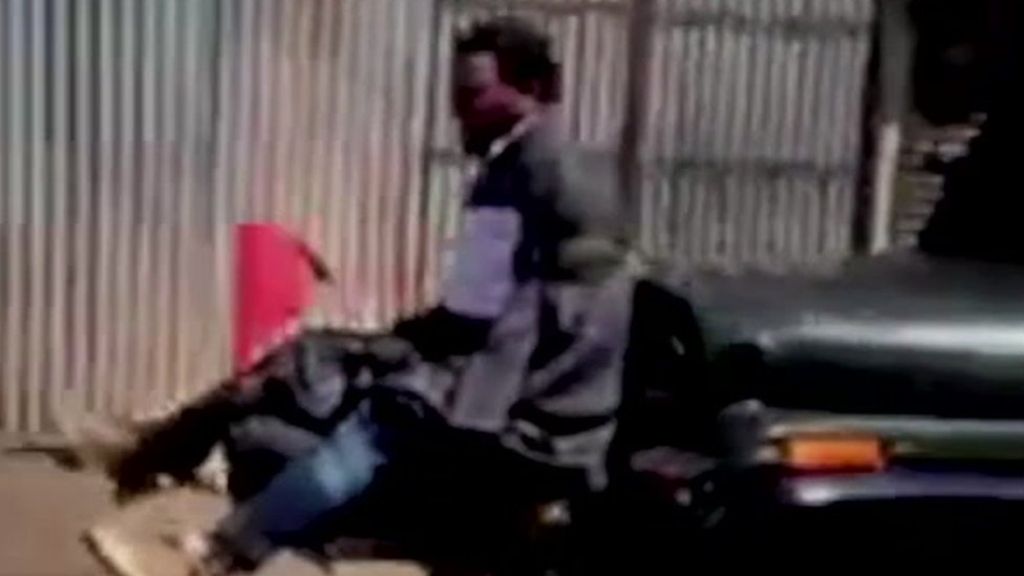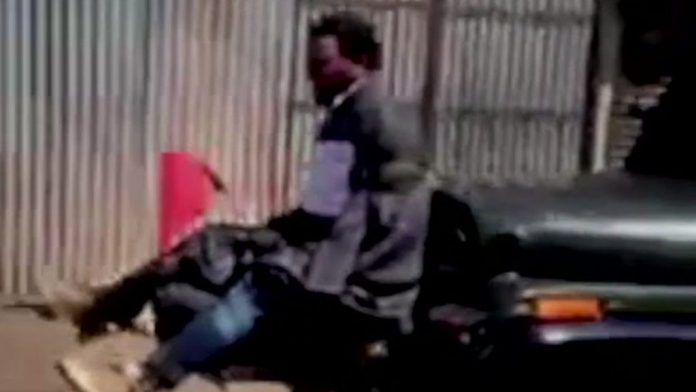By TwoCircles.net Staff Reporter
Human rights organisation Amnesty International India has criticised the Indian Army’s decision to present an award to a Major suspected of having a man tied to a moving military jeep in Jammu and Kashmir last month. Amnesty said that ‘it gives the impression that it condones human rights abuses’.

Aakar Patel, Executive Director at Amnesty International India, said, “Rewarding an officer who is under investigation for a human rights violation suggests that the Army seems to be willing to not just overlook, but actually valorise an act of cruel, inhuman and degrading treatment amounting to torture.”
He further said, “This decision sends the disturbing message to security force personnel and people in Jammu and Kashmir that the human rights of Kashmiris can be casually ignored without fear of punishment. Authorities should instead be trying to ensure that those responsible, including those with command responsibility, are brought to justice in a civilian court.”
Yesterday, Army Major Nitin Leetul Gogoi was awarded with chief of army staff’s commendation card for “sustained efforts in counter-insurgency operations”. Major Gogoi is suspected of having ordered 24-year-old Farooq Ahmad Dhar to be tied to a jeep, had a sign reading “I am a stone pelter” pasted to his chest, and driven around for over five hours on April 9 in Budgam district, Jammu and Kashmir.
Army officials have claimed that Farooq Dar was used as a ‘human shield’ to deter people from throwing stones at their convoy. However in a video of the incident uploaded online on 14 April, a voice over a loudspeaker can be heard saying, “This will be the fate of people who throw stones.”
Even after the award commemoration Gogoi told reporters, “I did this only to save the local people. Had I fired there would have been more than 12 casualties…with this Idea I have saved many people’s lives.” Taking a step forward in his allegations, Gogoi said that Farooq Ahmad Dar looked like a ‘ringmaster’ of stone pelters.
It is unclear yet that commendation to Gogoi is related to the incident occurred on April 9, but Indian Army has ordered a military investigation into the incident. However, it is unclear if the investigation has been completed.
“The disregard for the rights of Farooq Dar flies in the face of the commitments made by India recently at the UN Human Rights Council. It also contradicts the recent stand of the Indian government at the International Court of Justice in support of states respecting their international legal obligations,” said Aakar Patel.
Military investigations into human rights violations lack independence and have in the past served to shield perpetrators from prosecution. Prosecutions of security force personnel in J&K have seldom progressed due to restrictions imposed by the Armed Forces (Special Powers) Act, 1990 (AFSPA).
Section 7 of the AFSPA 1990 provides virtual immunity for human rights violations by security force personnel, as any civilian prosecution can only proceed after obtaining prior sanction from the central government. In the 27 years that the law has been in force in Jammu and Kashmir, not once has sanction been granted by the central government.
Speaking to Amnesty International India, Farooq Ahmad Dar said, “I want justice. The Army men who tied me up to a moving jeep should be prosecuted. Neither the police nor the army have approached to record my statement. I am not aware of the developments in the case other than what has been reported in the media.”


